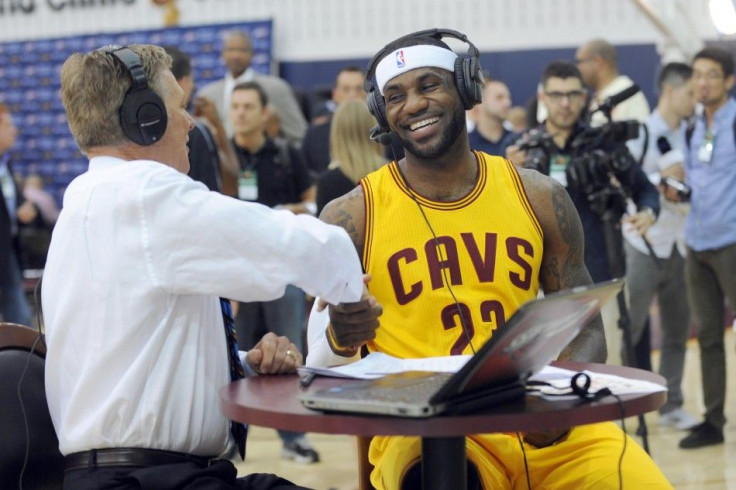LeBron James Anticipates 2017 NBA Lockout, Players Will Not Believe Owners Are Losing Money

The National Basketball Association is rolling with the good times. It is fresh off capping a widely viewed NBA Finals in June. It just held a successful Draft that rivals the class of 2004 that featured LeBron James, Dwayne Wade and Carmelo Anthony. It just witnessed an eventful summer that saw the return of James to his hometown Cleveland Cavaliers. And just a few days ago it renewed and tripled a TV deal that could lead revenue north of $2 billion.
The league is at its apex and the players are watching. Among those closely watching the financial scene is James, who has emerged as one of the leaders of the players on and off the court. In the last iteration of the negotiations for a Collective Bargaining Agreement in 2011, James was one of the prominent figures who pushed for more player-friendly provisions. Due to a pressing schedule and the hard stance of owners that they were losing money over owning an NBA team, there is a general notion that the ownership side won much of the negotiations when it was ratified in Dec. 2011. James believe that will not be the case come 2017.
"The whole thing that went on with the last negotiation process was the owners was [sic] telling us that they were losing money. There's no way they can sit in front of us and tell us that right now after we continue to see teams selling for billions of dollars, being purchased for $200 million, [selling] for 550 [million], 750 [million], $2 billion," James said according to ESPN. "And now [Mikhail] Prokhorov is possibly selling his majority stake in the Nets for over a billion. So that will not fly with us this time."
The two-time NBA champion stressed that players will be demanding for a larger share of the profits given that the league has exhibited that its value is ever-growing as attested by the recent sales of teams that generated a minimum of $550 million to as much as $2 billion. This, coupled with the threat of a new lockout in 2017 if both sides do not meet in the middle again, is forcing James to learn more about the business side of the NBA. He also reveals he learned much of the financials from co-players such as Roger Mason, Jr. and James Jones.
"Clock ticking? The clock never stopped," James added. "Even after we came out of the lockout and signed a new deal, the clock never stopped."
The time element was one of the main reasons why James has chosen to take a two-year deal with the Cavaliers instead of a four-year contract. The general consensus was that James was banking on the new TV deal to push revenue forward and a new collective bargaining agreement to upscale salary and possibly the removal of maximum contracts. James is signed to an annual deal of almost 21 million for the next two years and can earn more than that if a new CBA allows it.
The same cannot be said for Carmelo Anthony who chose to extend for five years with the New York Knicks and will no longer be eligible for a new deal once the new and potential CBA kicks in. Anthony relays that he had no regrets about his decision to lock up long term since he has a lot of respect for his organisation.





















